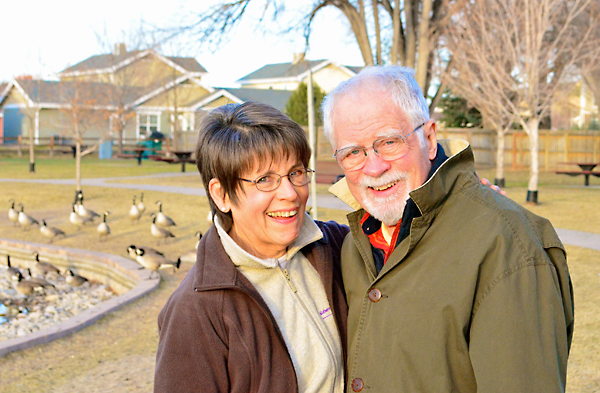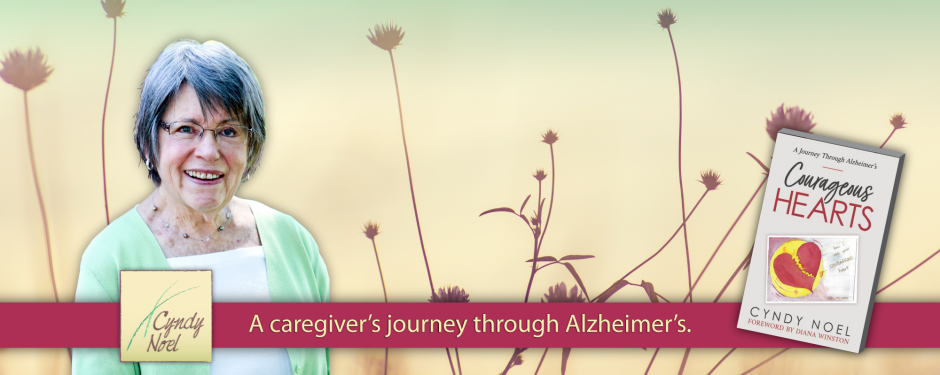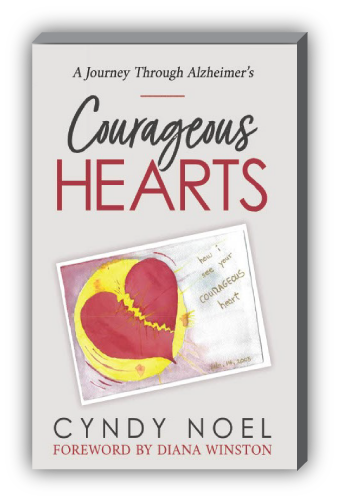In the early days of Ron’s Alzheimer’s, I had a hard time acknowledging what was happening and I got mad when he couldn’t do the things he had done earlier in our marriage. I described that in my memoir, Courageous Heart, A Journey Through Alzheimer’s when I wrote:
. . . denial is a common reaction that family members go through when confronted by the unexplainable behavior of a loved one with dementia. I guess I was no exception. In fact, I remembered that denial was one of the stages of grief that Elisabeth Kubler-Ross referred to in her classic book, On Death and Dying, which I had read years earlier. And anger was one of the stages too. Clearly, both those emotions related to what I was experiencing with the loss of Ron as I knew him, even though he was still very much a part of my life.
It was hard to understand that the life we had known and the anticipation of aging together as we had planned, were no longer possible. I learned that Alzheimer’s didn’t end until the patient passed away unless they had a comorbidity such as heart disease, from which they died sooner.
But Ron had been healthy. I wondered how long he was going to live.
With the gradual progression of the disease, I found myself grieving over and over as the losses occurred. We couldn’t have the conversations we used to have and we had to cut back on the activities we enjoyed doing together. I could no longer get away as easily to enjoy time with my friends, as I had to make sure there was someone who could watch Ron. And I didn’t get the opportunity to have time alone at home, since Ron could no longer go out on his own.
I felt sad as I saw the losses that Ron was experiencing too. He lost his independence and could no longer drive, then became incontinent, needed help with showering and eating, and eventually required a wheelchair when he could no longer walk, at which time I placed him in a skilled nursing facility. There he could receive the care he needed, without putting my health at risk.
Since he then spent his time either in bed or in a wheelchair, he got bedsores, for which he received excellent care from the nursing staff. I wrote about that. “Seeing yet another decline in Ron’s physical health seemed to take me to a deeper level of grief. When I left that day, I cried all the way home”.
One evening I attended a support group at the facility and the chaplain pointed out that
The grieving that occurs with Alzheimer’s is not just about the loss of the person, but the loss of the person we then got to know, then the loss of that one, and the loss of that one.
That was a perfect way to describe what I had been experiencing.
The final loss of Ron occurred about nine years after I began to notice his early symptoms. That was a day of great sadness, though, I had been preparing for it, and grieving along the way. And of course, the grief continues when I hear a certain song that reminds me of him, read one of his poems, or participate in in activity that we used to share.


